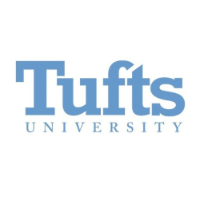What do they do?
Assess, treat, and care for patients by manipulation of spine and musculoskeletal system. May provide spinal adjustment or address sacral or pelvic misalignment.
Also known as:
Chiropractic Doctor (DC), Chiropractic Neurologist, Chiropractic Physician, Chiropractor
-
0.7%
Change
Ranks #51 in job growth rate60Job Openings
Ranks #25 in net job growth
Looking for colleges that offer a specific major? Use the College Match Tool to find your best-matched schools and discover your estimated Net Price!
- Doctorate or Professional Degree (89%)
- Bachelor's degree (6%)
- Master's degree (2%)
- Some college, no degree (1%)
- High school diploma equivalent (1%)
- Associate's degree (<1%)
- Less than high school diploma (<1%)
Most Popular Majors that prepare Chiropractors
-
#1
-
Degrees Granted
10,767
-
Female Students
8,748
-
Male Students
2,019
-
Median Starting Salary
$38,300
-
-
#2
-
Degrees Granted
5,226
-
Female Students
4,985
-
Male Students
241
-
Median Starting Salary
$38,300
-
-
#3
-
Degrees Granted
4,704
-
Female Students
4,526
-
Male Students
178
-
Median Starting Salary
$38,300
-
-
#4
-
Degrees Granted
3,734
-
Female Students
3,077
-
Male Students
657
-
Median Starting Salary
$47,533
-
-
#5
-
Degrees Granted
3,113
-
Female Students
2,435
-
Male Students
678
-
Median Starting Salary
$48,800
-
People in this career often have these skills:
- Active Listening - Giving full attention to what other people are saying, taking time to understand the points being made, asking questions as appropriate, and not interrupting at inappropriate times.
- Reading Comprehension - Understanding written sentences and paragraphs in work-related documents.
- Speaking - Talking to others to convey information effectively.
- Critical Thinking - Using logic and reasoning to identify the strengths and weaknesses of alternative solutions, conclusions, or approaches to problems.
- Writing - Communicating effectively in writing as appropriate for the needs of the audience.
- Social Perceptiveness - Being aware of others' reactions and understanding why they react as they do.
- Complex Problem Solving - Identifying complex problems and reviewing related information to develop and evaluate options and implement solutions.
- Service Orientation - Actively looking for ways to help people.
- Judgment and Decision Making - Considering the relative costs and benefits of potential actions to choose the most appropriate one.
- Science - Using scientific rules and methods to solve problems.
- Active Learning - Understanding the implications of new information for both current and future problem-solving and decision-making.
People in this career often know a lot about:
- Medicine and Dentistry - Knowledge of the information and techniques needed to diagnose and treat human injuries, diseases, and deformities. This includes symptoms, treatment alternatives, drug properties and interactions, and preventive health-care measures.
- English Language - Knowledge of the structure and content of the English language including the meaning and spelling of words, rules of composition, and grammar.
- Customer and Personal Service - Knowledge of principles and processes for providing customer and personal services. This includes customer needs assessment, meeting quality standards for services, and evaluation of customer satisfaction.
- Biology - Knowledge of plant and animal organisms, their tissues, cells, functions, interdependencies, and interactions with each other and the environment.
- Psychology - Knowledge of human behavior and performance; individual differences in ability, personality, and interests; learning and motivation; psychological research methods; and the assessment and treatment of behavioral and affective disorders.
- Administration and Management - Knowledge of business and management principles involved in strategic planning, resource allocation, human resources modeling, leadership technique, production methods, and coordination of people and resources.
- Administrative - Knowledge of administrative and office procedures and systems such as word processing, managing files and records, stenography and transcription, designing forms, and workplace terminology.
- Personnel and Human Resources - Knowledge of principles and procedures for personnel recruitment, selection, training, compensation and benefits, labor relations and negotiation, and personnel information systems.
- Education and Training - Knowledge of principles and methods for curriculum and training design, teaching and instruction for individuals and groups, and the measurement of training effects.
- Therapy and Counseling - Knowledge of principles, methods, and procedures for diagnosis, treatment, and rehabilitation of physical and mental dysfunctions, and for career counseling and guidance.
- Sales and Marketing - Knowledge of principles and methods for showing, promoting, and selling products or services. This includes marketing strategy and tactics, product demonstration, sales techniques, and sales control systems.
People in this career often have talent in:
- Oral Comprehension - The ability to listen to and understand information and ideas presented through spoken words and sentences.
- Written Comprehension - The ability to read and understand information and ideas presented in writing.
- Oral Expression - The ability to communicate information and ideas in speaking so others will understand.
- Problem Sensitivity - The ability to tell when something is wrong or is likely to go wrong. It does not involve solving the problem, only recognizing that there is a problem.
- Deductive Reasoning - The ability to apply general rules to specific problems to produce answers that make sense.
- Inductive Reasoning - The ability to combine pieces of information to form general rules or conclusions (includes finding a relationship among seemingly unrelated events).
- Written Expression - The ability to communicate information and ideas in writing so others will understand.
- Information Ordering - The ability to arrange things or actions in a certain order or pattern according to a specific rule or set of rules (e.g., patterns of numbers, letters, words, pictures, mathematical operations).
- Speech Clarity - The ability to speak clearly so others can understand you.
- Near Vision - The ability to see details at close range (within a few feet of the observer).
- Speech Recognition - The ability to identify and understand the speech of another person.
- Trunk Strength - The ability to use your abdominal and lower back muscles to support part of the body repeatedly or continuously over time without "giving out" or fatiguing.
People in this career often do these activities:
- Examine patients to assess general physical condition.
- Gather medical information from patient histories.
- Diagnose medical conditions.
- Treat patients using physical therapy techniques.
- Collect medical information from patients, family members, or other medical professionals.
- Record patient medical histories.
- Advise patients on effects of health conditions or treatments.
- Analyze test data or images to inform diagnosis or treatment.
- Provide health and wellness advice to patients, program participants, or caregivers.
- Collaborate with healthcare professionals to plan or provide treatment.
- Refer patients to other healthcare practitioners or health resources.
- Schedule patient procedures or appointments.
- Apply bandages, dressings, or splints.
- Recommend types of assistive devices.
This page includes data from:

 Occupation statistics: USDOL U.S. Bureau of Labor Statistics Occupational Employment Statistics
Occupation statistics: USDOL U.S. Bureau of Labor Statistics Occupational Employment Statistics
 Videos: CareerOneStop, USDOL/ETA and the Minnesota Department of Employment & Economic Development
Videos: CareerOneStop, USDOL/ETA and the Minnesota Department of Employment & Economic Development













